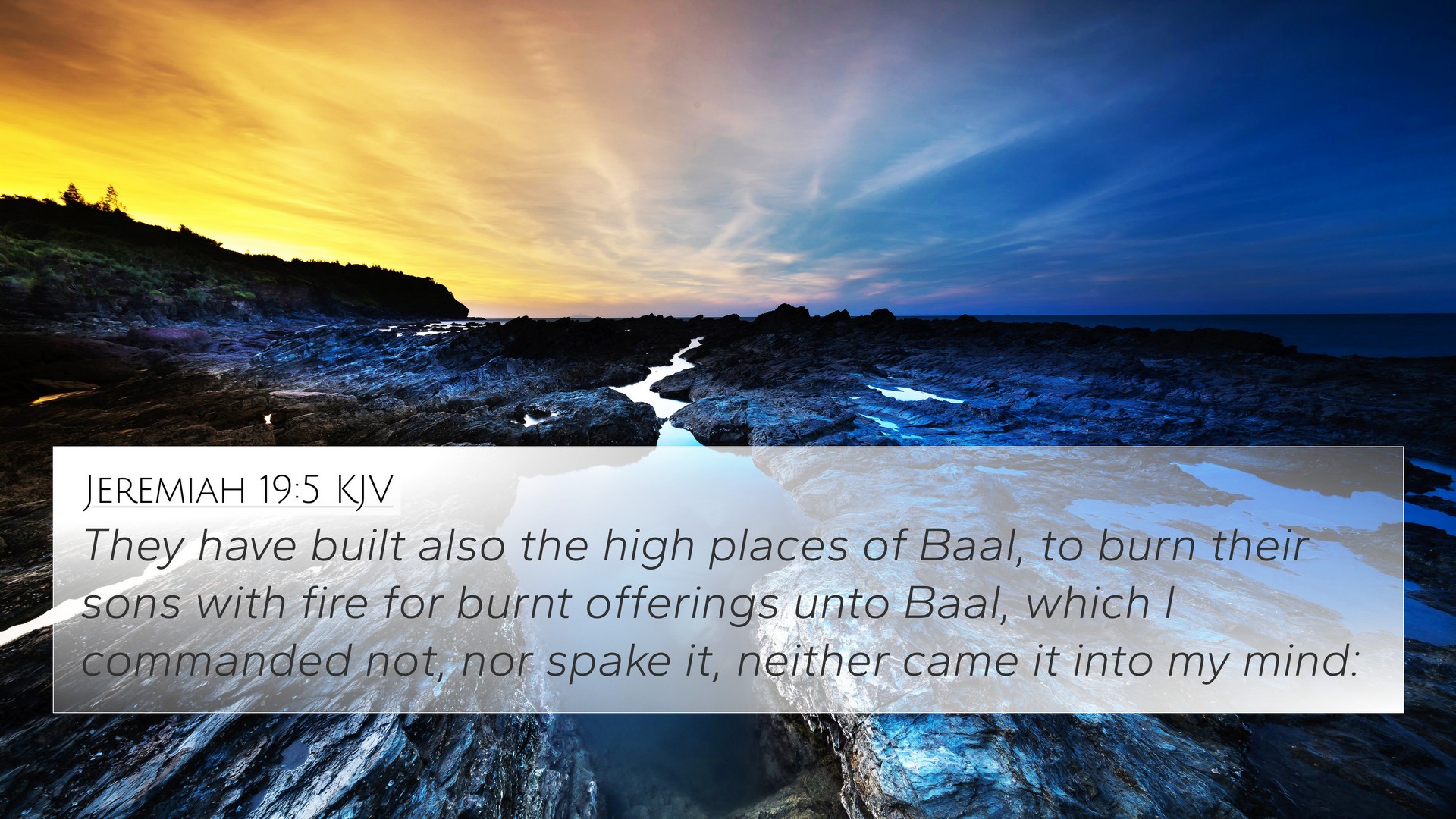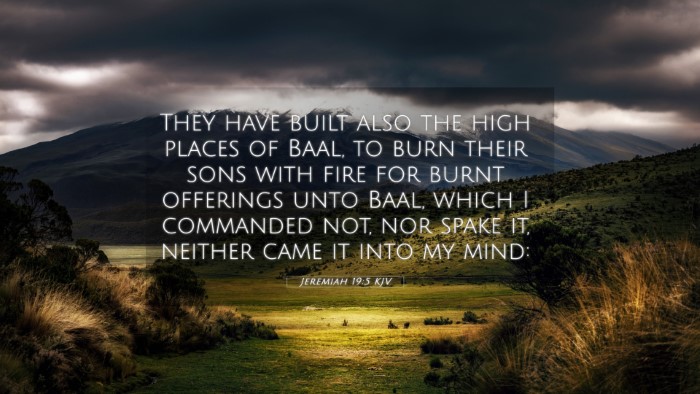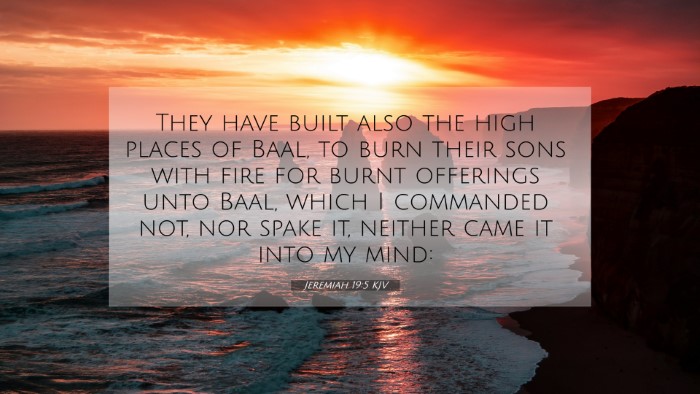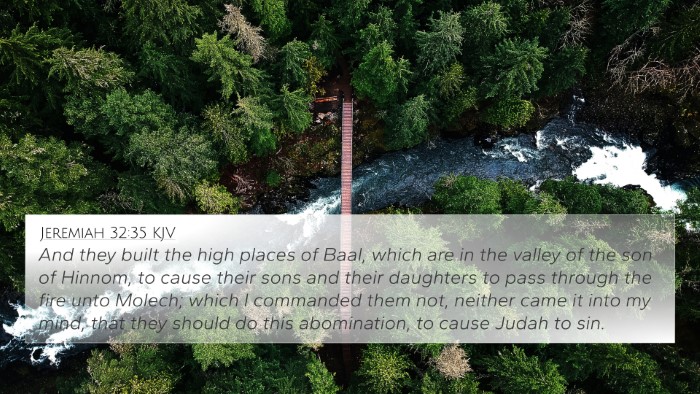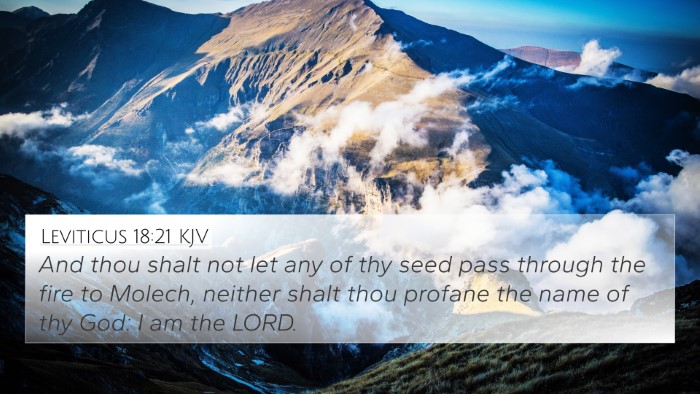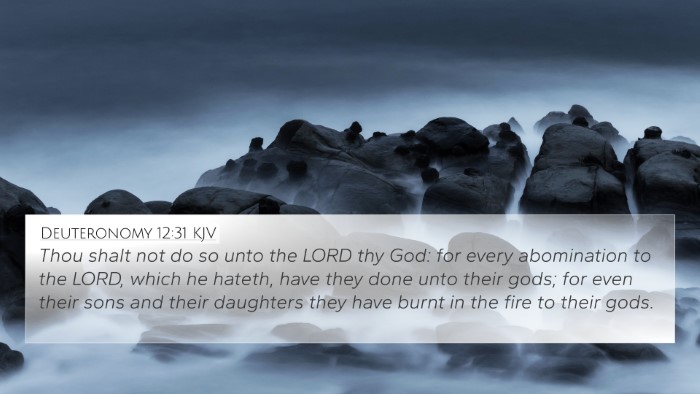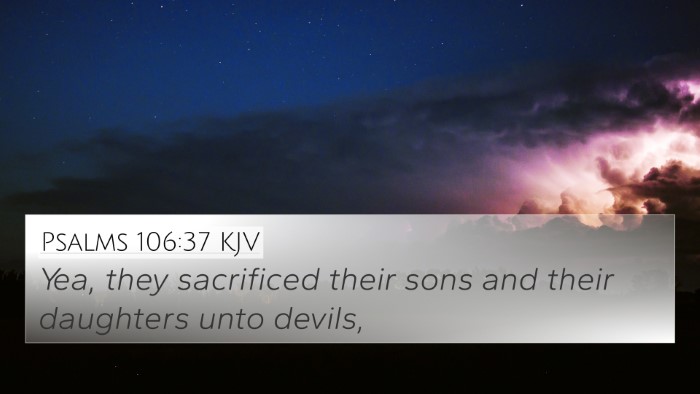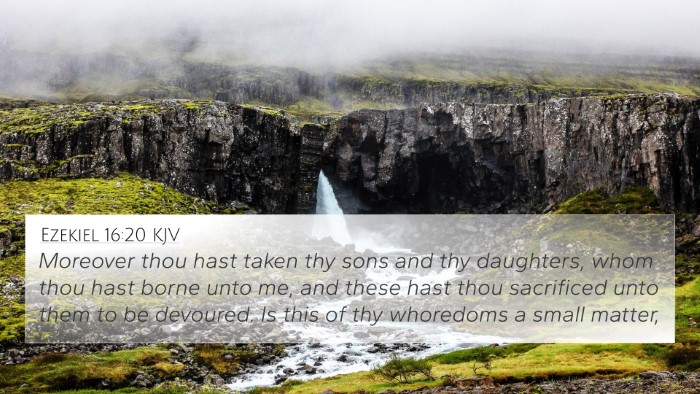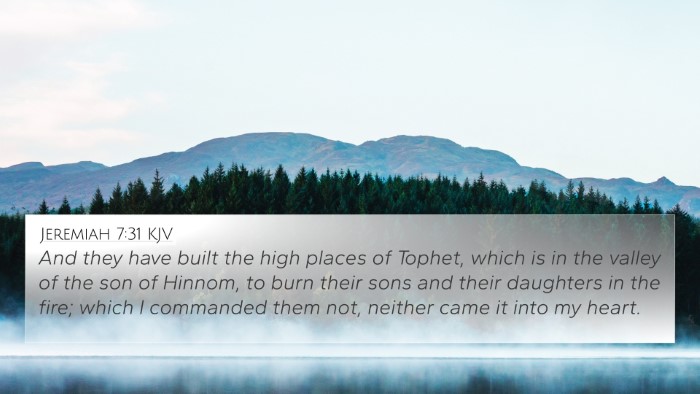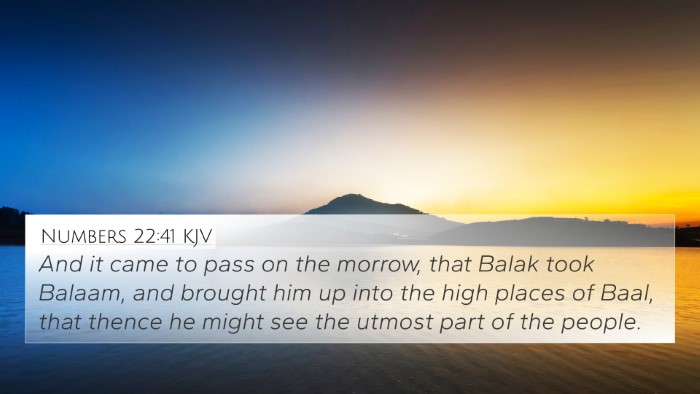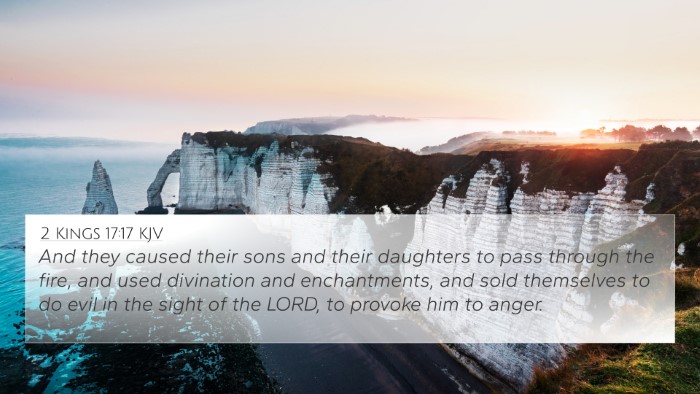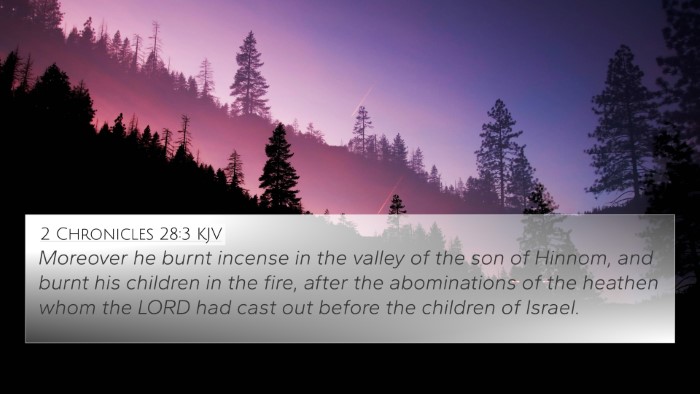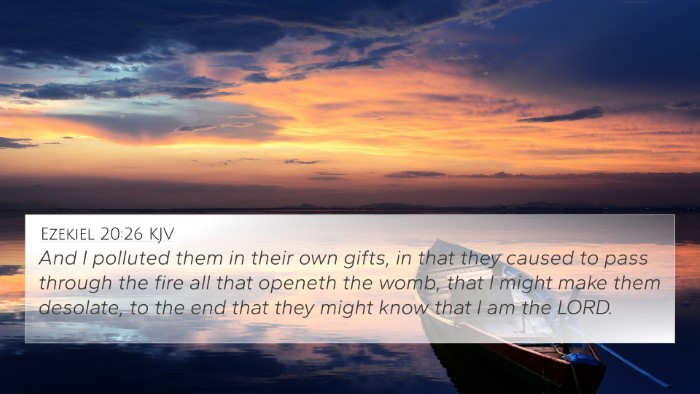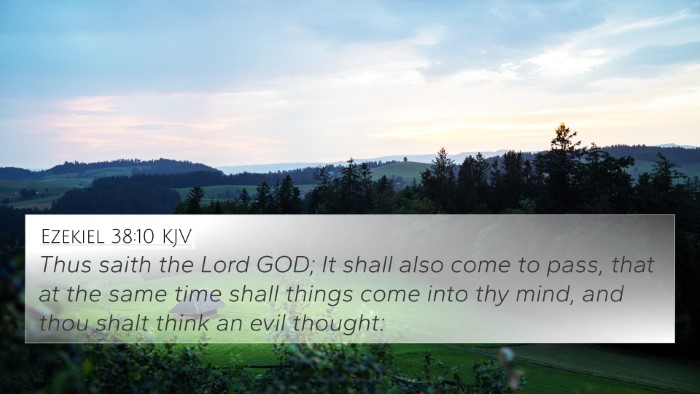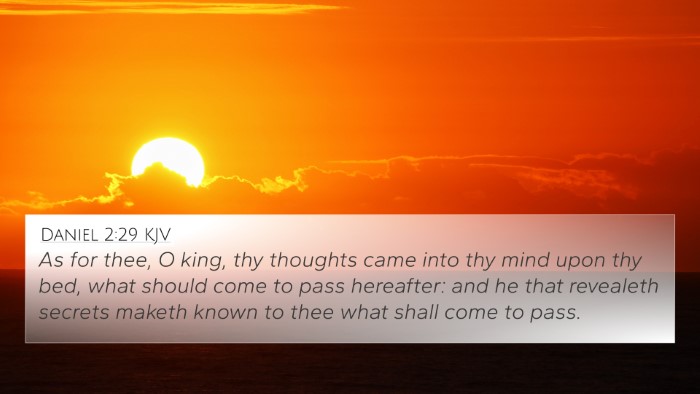Understanding Jeremiah 19:5
Jeremiah 19:5 states, "They have built also the high places of Baal, to burn their sons with fire for burnt offerings unto Baal, which I commanded not, nor spake it, neither came it into my mind."
This verse highlights the severe condemnation of child sacrifice in the context of worship to pagan deities, particularly Baal. The passage reflects the broader theme of the prophet Jeremiah revealing Israel's abandonment of God for idolatrous practices.
Meaning and Interpretation
The significance of this verse can be interpreted through insights from various public domain commentaries:
- Matthew Henry elaborates on the tragedy of how far the people have deviated from the commands of God. He emphasizes that the practice of child sacrifice was abominable and illustrates the depth of moral and spiritual corruption among the Israelites.
- Albert Barnes highlights the fact that God never commanded such sacrifices, elucidating that these actions were not only sinful but a direct contravention of divine law. This underscores the idea that what God desires is righteousness, not empty rituals or horrific acts.
- Adam Clarke takes a historical approach, considering the cultural influences that led Israel to idol worship. He points out the tragic irony of offering one's children to a god who demands such horrific practices, which were never intended by the Creator.
Cross-References
This verse can be connected with several other scriptures to enrich understanding and reveal thematic links:
- Leviticus 18:21: Prohibition against child sacrifice to Moloch, showing the consistent moral stance of God against such practices.
- Deuteronomy 12:31: Further admonishment against imitating the abominations of other nations, particularly the vehemence against child sacrifices.
- Jeremiah 7:31: God condemns the same sinful practices and declares His disapproval of such abominable acts.
- Ezekiel 20:31: A reference to Israel’s abominations and how they angered God, reinforcing the message that these sacrifices were wholly against His will.
- Psalm 106:37-38: A reflection on the Israelites' sacrifices of their children to idols, showcasing God's displeasure.
- 2 Kings 21:6: Discussing King Manasseh's actions, which included child sacrifice, highlighting the depths of Judah’s sin during that period.
- Micah 6:7: Questions about what God requires, demonstrating a contrast between God's desires and the misguided rituals of Israel.
Thematic Connections
In analyzing the thematic connections across these verses, one can observe:
- Idolatry and Its Consequences: The persistent theme of turning away from God leads to moral decay and spiritual disaster.
- Divine Disapproval: The consistent message throughout the Old Testament warns against practices that are viewed as abominable to God.
- Righteousness vs. Rituals: God desires a relationship based on faithfulness rather than mere ceremonial observance.
Conclusion
Jeremiah 19:5 serves as a stark reminder of the dangers of deviating from God's commands. It calls attention to the grievous sin of child sacrifice and illustrates how God's genuine intentions for His people are repeatedly disregarded in favor of sinful practices. Understanding this verse in the context of cross-references and thematic connections deepens one’s insight into the nature of sin and the necessity for repentance.
Exploring Cross-Referencing](### Bible Study
For those studying the Bible, utilizing tools for cross-referencing such as a Bible concordance or a cross-reference Bible study guide can be invaluable. Here's how to effectively use these resources:
- Identify major themes or sins in a verse and find supporting references throughout Scripture.
- Linking Bible scriptures through comparable studies can uncover rich theological truths and moral lessons.
- Employing cross-reference Bible study methods will enhance one’s understanding of connections within the text, illustrating God's consistent nature across different contexts.
